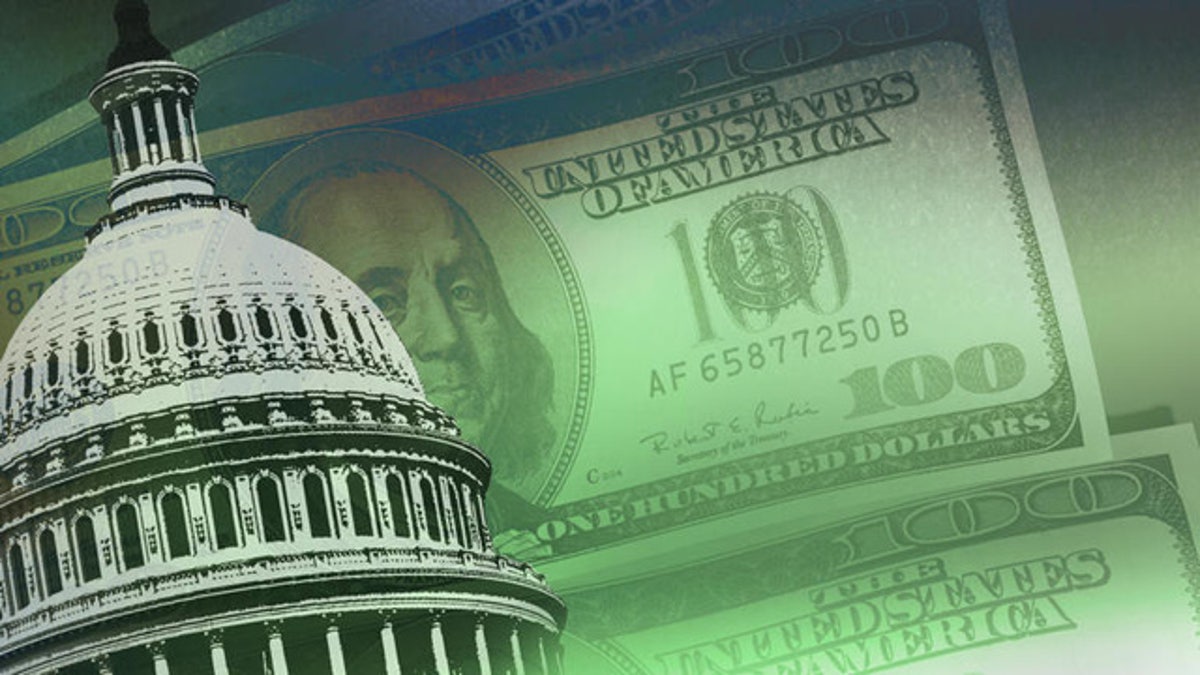
It is the most powerful federal agency you’ve never heard of -- and lawmakers from both parties on Thursday vowed to keep abreast of its astonishing growth and rein it in, if necessary.
The Office of Financial Research, or OFR, was created by the Dodd-Frank financial services overhaul that President Obama signed into law in July 2010. Technically housed under the Treasury Department, the agency has until now received its funding not from the Congress, but directly from the Federal Reserve.
Starting in July, the OFR Fiscal Year 2013 budget, estimated at $158 million, will be funded entirely through assessments -- also known as taxes -- on bank-holding firms with consolidated assets worth at least $50 billion.
But as became clear at Thursday’s hearing by the House Financial Services Subcommittee on Oversight and Investigations, a close reading of the law the president signed provides no limit on the growth of OFR’s budget, nor on the taxes the agency can impose on big banks to fund it.
“We’ll call you on it,” said Rep. Michael Capuano, D-Mass., warning what would happen if he and his colleagues see the agency growing too large.
Yet the Congress’ prospects for doing that are at present limited, as it holds no power of the purse over OFR. Detractors call it "the CIA of financial regulators,” and conjure "Orwellian" visions of "an omniscient Soviet-style central risk manager."
The agency’s official mission is to collect financial data and funnel it to another Dodd-Frank creation: the Financial Stability Oversight Council. These agencies were designed with the idea of preventing another systemic shock of Lehman Brothers magnitude.
Toward that end, OFR was invested with virtually unlimited subpoena power. It can compel just about any company in America to turn over to the federal government sensitive internal data, even proprietary information.
“We're only going to be collecting the data that we absolutely need, to fulfill our mission,” testified Michele Shannon, the new agency’s chief operating officer. “We're trying to fill data gaps. We're not going to be collecting for collection's sake. We're going to be making sure that only those people who absolutely need to have access to sensitive data have that access.”
But Republicans on the panel remained skeptical about the potential for abuses of power.
“You're able to tax corporations without any oversight by the U.S. Congress,” said Rep. Steve Pearce, R-New Mex. “Our Constitution is pretty clear, and so if we're a little scratchy on our side, just understand it's because you're conducting things that we feel like are completely unconstitutional.”
Rep. Bill Posey, R-Fla., questioned both the need for OFR to exist and its ability to protect adequately the sensitive data it will collect through its subpoena power.
“Your agency…seems to think it can outsmart Wall Street, if they have enough extra people and enough software, that they can see where the next problem is going to be,” Posey said at Thursday’s hearing. “But everyone with half a brain in this country saw the last problem way before it burst. We knew there was a subprime crisis; it was just a matter of how long it would be before it burst.”
Posey also noted that the computer systems of some national defense agencies have been hacked. “I wonder whether or not you'll be able to have a safer process than some of them did,” he said.
One of the panel’s most liberal members, Rep. Maxine Waters, D-Calif., normally alarmed by unbridled expansions of subpoena power, defended OFR, citing the experience of the Great Recession. “I hope that all my colleagues agree that having, consolidating, and understanding this complex financial data would be key to preventing another systemic risk,” she said.





















